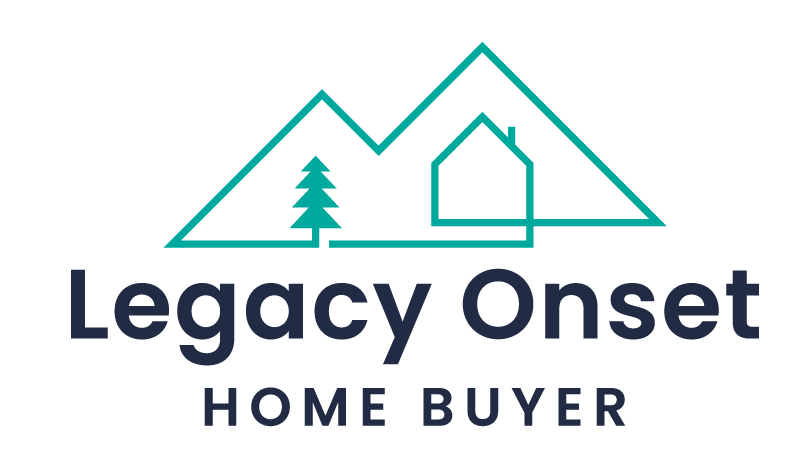How to Evaluate Cash Offers on Your Home: A Step-by-Step Guide
Selling a home can be a daunting process, especially when you're presented with various types of offers. Among these, cash offers stand out due to their potential for quick closure and reduced complexity. But how do you evaluate whether a cash offer is the right choice for you? Here are the steps involved in assessing cash offers on your home, including understanding key factors that influence such offers, recognizing red flags, and leveraging market analysis to make informed decisions.
Key Factors Influencing Cash Offers
The value of a cash offer can be significantly affected by current market conditions. In a seller's market, where demand outstrips supply, cash offers might be higher as buyers compete for limited inventory. Conversely, in a buyer's market, cash offers might come in lower due to increased property availability. The condition and location of a home also play crucial roles. Properties in prime locations or in excellent condition often fetch better offers. Urgency on the seller's part, whether due to personal circumstances or pressing financial needs, can also sway the offer amount. Factors like required repairs or potential legal issues can lead to lower cash offers, as buyers factor these costs into their calculations.
How to Assess the Fairness of a Cash Offer
Evaluating the fairness of a cash offer involves comparing it to current market valuations. Homeowners should consider obtaining an independent appraisal to understand their property's market value. Appraisals provide a professional estimate of a home's worth, which can be used as a benchmark when reviewing offers. Homeowners should consider recent sales data for similar properties in the neighborhood, as this will offer insight into whether the cash offer aligns with current market trends. It is also important to evaluate the buyer’s flexibility regarding closing timelines, contingencies, and potential repairs, as these factors can impact the overall value of the offer. While a higher cash offer may seem appealing, homeowners should assess the offer holistically, weighing the financial terms, ease of transaction, and potential risks. Lastly, understanding the buyer’s ability to close quickly without financing issues can help ensure the offer is both fair and reliable, reducing the likelihood of delays or complications down the line.
Red Flags to Watch Out For
While cash offers can be appealing, sellers should be wary of dubious ones. Extremely low offers or those accompanied by high-pressure tactics can be red flags. Scams are not uncommon in real estate, and sellers should be vigilant about offers that seem too good to be true. It's crucial to verify the buyer's credibility and financial capability. Stories abound of homeowners encountering fraudulent offers, highlighting the importance of due diligence. Always ensure that the buyer can provide proof of funds and has a legitimate track record in property transactions.
Insights from Industry Insiders
Real estate experts often emphasize the importance of evaluating cash offers carefully. According to industry insiders, a strong cash offer is one that aligns with market values and is backed by a credible buyer. Experienced cash home buyers suggest that clarity in terms and conditions is key to a successful transaction. Negotiating these terms is an art, and sellers should aim for agreements that meet their needs without compromising too much on price. Professionals in the industry typically assess cash offers based on the property's potential resale value, the cost of necessary repairs, and the current market dynamics.
The Role of Market Analysis in Cash Offers
Market trends have a substantial influence on cash offer amounts. Conducting a comparative market analysis (CMA) can provide sellers with a clearer picture of their property's value in relation to similar homes in the area. Local market knowledge is vital, as real estate conditions can vary significantly even within the same city. In Washington state, for example, cash offers in Seattle might differ greatly from those in Spokane due to varying demand and economic factors. Case studies have shown that a thorough market analysis can help sellers make informed decisions when evaluating cash offers.
Steps to Take After Receiving a Cash Offer
Once a cash offer is received, sellers should take several initial steps. First, review the offer details carefully and communicate with the buyer to clarify any terms. It's essential to conduct due diligence, including verifying the buyer's funds and reviewing any contingencies in the offer. Legal checks are necessary to ensure there are no liens or disputes tied to the property. Consulting with a real estate attorney or professional can provide additional peace of mind and help navigate any complex issues that arise during the transaction process.
Negotiating Cash Offers
Negotiation is a critical component of evaluating cash offers. Sellers should not feel pressured to accept the first offer they receive, even if it is a cash offer. It's essential to consider all aspects of the offer, including the timeline for closing, any contingencies, and the buyer's willingness to accommodate the seller's needs. Engaging in open communication with the buyer can lead to a mutually beneficial agreement. Sellers might also consider making counteroffers to ensure they receive a deal that aligns with their financial and personal goals.
Understanding the Impact of Local Regulations
Local regulations and property laws can significantly affect the evaluation of cash offers. In some regions, there may be specific legal requirements or taxes associated with property sales that could impact the net proceeds from a sale. Understanding these local factors is crucial for sellers, as they can influence the overall attractiveness of a cash offer. Consulting with a real estate professional familiar with local laws can provide valuable insights and help avoid potential pitfalls during the transaction process.
When evaluating cash offers, it's important to weigh all factors, including the buyer's transparency and trustworthiness. Sellers should consider their personal goals and circumstances, such as the need for a quick sale or financial stability. Choosing the right offer can lead to a successful and stress-free transaction, ensuring that the seller's objectives are met without unnecessary complications. By prioritizing a straightforward and honest process, homeowners can achieve a favorable outcome in their real estate dealings.
For expert guidance on evaluating cash offers and making the most informed decisions in your home selling process,
reach out to Legacy Onset Home Buyer today. Our team is dedicated to providing personalized support and ensuring a seamless transaction experience.











